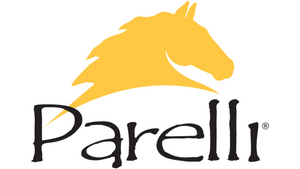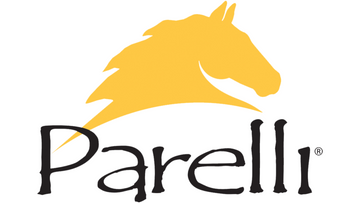Why "Pasture Potatoes" Are Sinful
bis Parelli Natural Horsemanship auf Jun 22, 2022

By Pat Parelli
What in the world is a pasture potato? Well, I see them all over the world. Driving down the road, I’ll look over to my side, and—behold—I spot one or two horses just standing in the pasture. From human standards, the pasture looks big. But from horse standards, that same pasture is minuscule compared to what's in their heart—what’s in their DNA—which is to be out in the wild, running and roaming free.
We all know that we can't just let our horses roam free, but horses have an innate desire to play, be active, and think about their environment. Consider, for a moment, the natural social behavior of horses in the wild. There would be a bachelor herd with several young stallions playing dominance games to see who's highest in the pecking order. Then there would be a herd of mares with one stallion, where the mares also play dominance games for pecking order.
This dynamic, of course, is all about procreation. But beyond that, they are thinking all day long about how they will engage their environment, like going over to get something to drink when they’re thirsty, then going elsewhere to eat once they’ve eaten everything around the watering hole, and so on. All the while, they’re still confirming the current pecking order, making sure it is still in place. Sometimes that pecking order will change to adjust to horses getting older, a horse becoming sore-footed or lame, or other factors. So, all day long, horses are roaming and playing games with each other. The only constant thing in in a wild horse’s life is change.
When I first started working with horses four decades ago, and people would say, “I'm going to go work with my horse,” I would respond, “Well, why don't you play with your horse and work on yourself? Work on yourself to be mentally, emotionally, physically, and even spiritually fit enough to be the horseman that your horse needs you to be?” I would say this to them because it's so easy to place such importance on obedience that the horse doesn't get a chance to play. A playful horse is then interpreted as a naughty horse.
So, I came up with this concept to get us all to play seven different games with our horses. And these Seven Games are just the use of horse psychology. In my first seminar, I stepped out in front of everybody and said: “Horsemanship can be obtained naturally through communication, understanding and psychology versus mechanics, fear and intimidation.”
I had realized that what I had learned from a great horseman, Mr. Troy Henry, was that most people were just mechanical with horses and demanded obedience. A lot of other people had no idea how to get a horse to obey, but they didn't like that he played with them. But in the end, he took that horse play, used it properly, and turned it into horsepower.
After watching thousands of students playing with horses in front of my eyes at clinics, what I discovered is that the horses became happier. Finally, the boring life that they were leading in a small pasture or a stall, all of a sudden was illuminated because somebody started playing these pecking order games with them.
These games brought them alive and gave them things to think about things to do. Instead of just standing there all day long and being ridden intermittently, they had a purpose aligned with their nature. One of the purposes behind our nonprofit—the Parelli Foundation—is horse welfare, where we take action towards the humane treatment of horses. We’ve all seen horses that have been starved. We’ve all seen horses that have been abused. But hardly anybody talks about the abuse of just putting a horse in a jail of sorts. I’m sure you have heard of someone who has bought a horse and only goes to see it a couple of times a year. That horse stands in the stall, and the boarding facility feeds the horse and cleans the stall, but that’s it. That’s like putting your boat in dry dock or your RV in storage just to use it when you want to.
Such scenarios make me wonder about horses that just stand there in a pasture or stall with nothing to do and nothing to think about. What is life like for them? What is their purpose? On the other hand, picture a horse whose owner wants to become a horseman by learning how horses feel, think, act, and play. Suddenly, that horse’s life opens up.
Now imagine that same owner playing the Seven Games in all Four Savvys with that horse, not just on the ground, but also in the saddle—a partner that wants to go on trail rides and actually engage in conversations with their horse (not just engage in conversations with their trail buddy).
So as you can see, there is a sublime sin that is committed when horses are just left to sit and become pasture potatoes, when we can offer them so much more in their lives. Can you imagine how much happier your horse would be if he had a human in his life that learned equine communication, understood the innate needs of horses, and employed long body logic (psychology) to cause your ideas to become his ideas? This life is very attainable through the Parelli Levels Program, which is inside the Savvy Club. We hope you’ll join countless horsemen before you who have taken the same path towards a better horse life.





